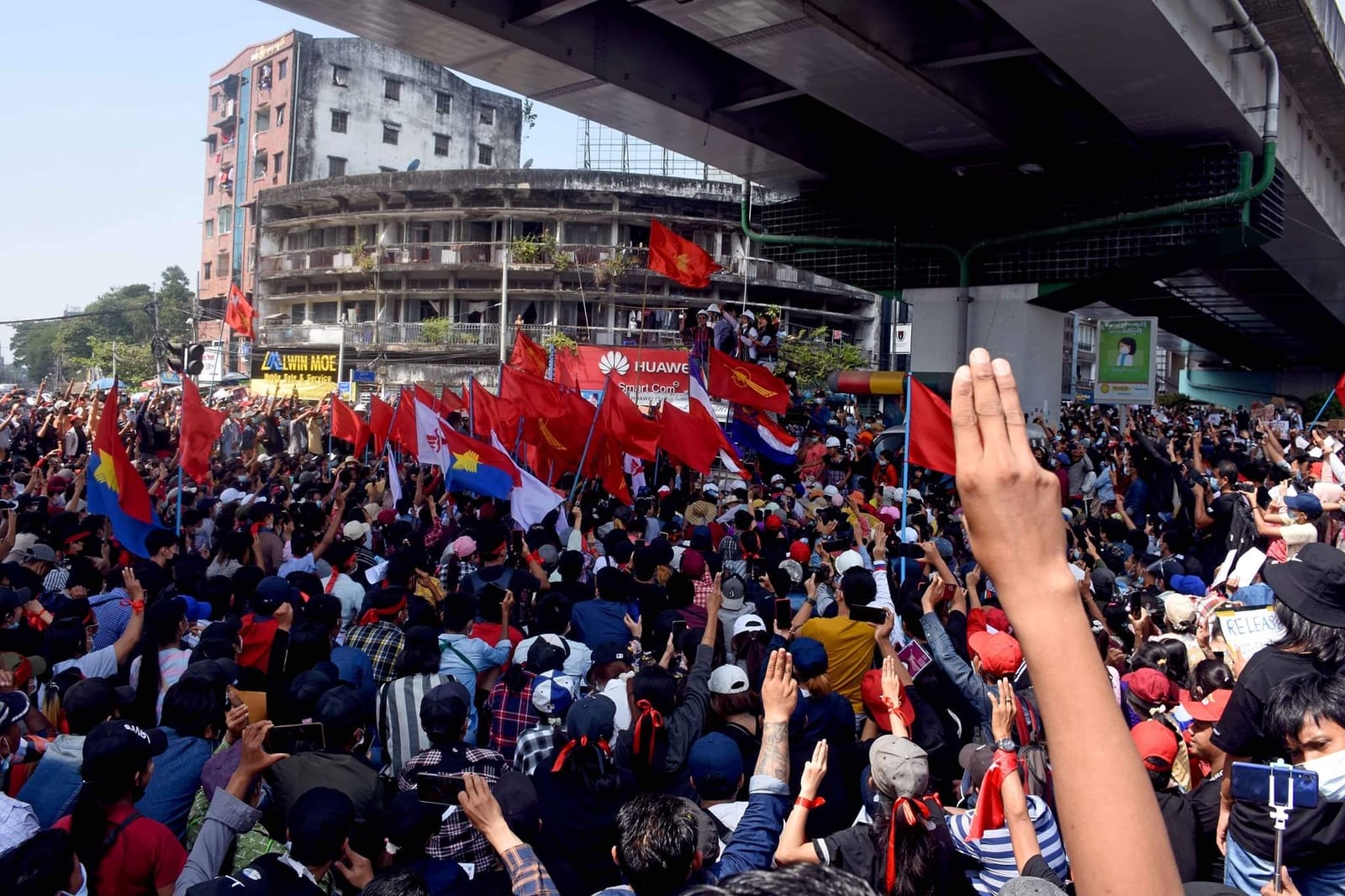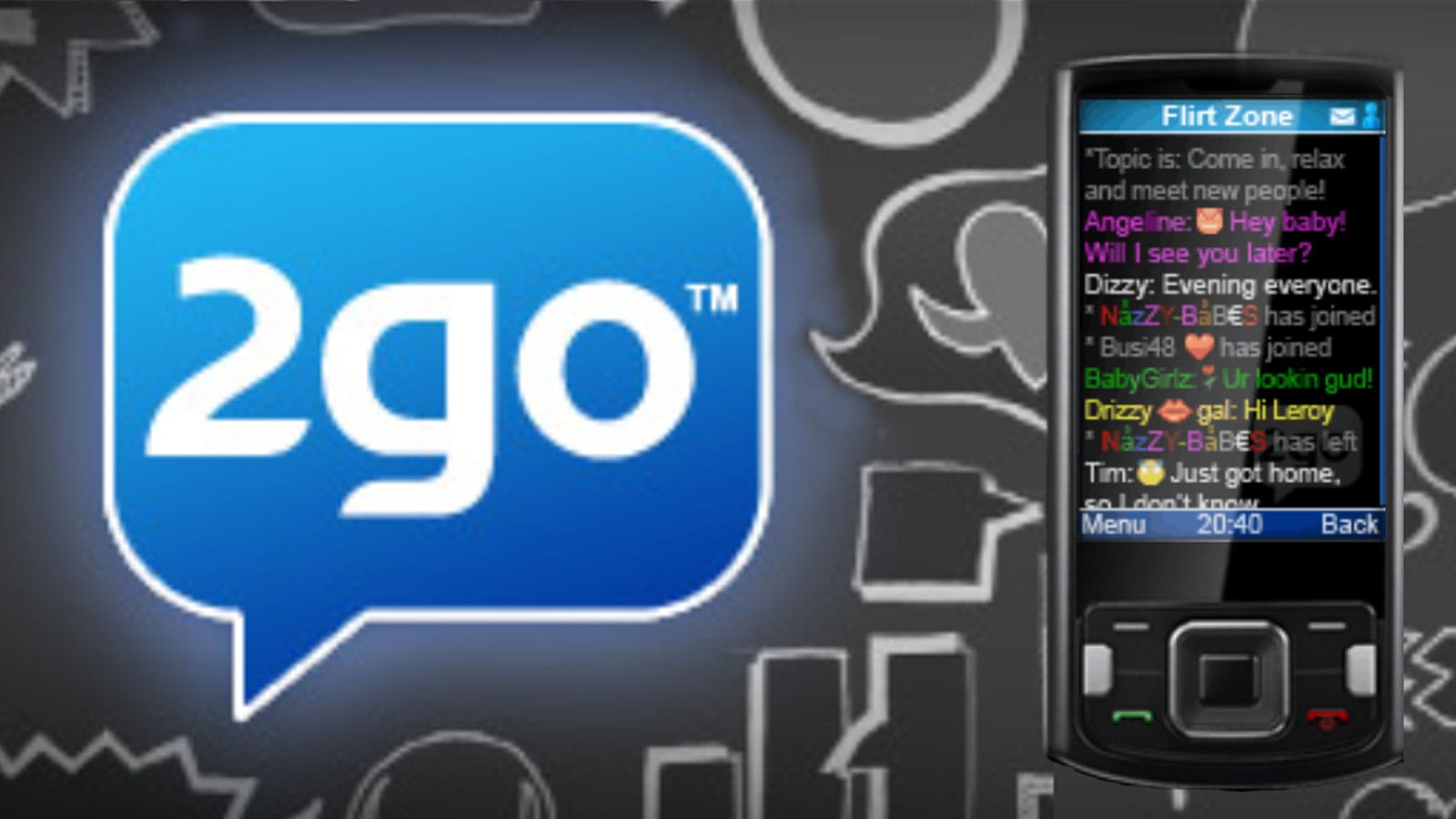 VOA Burmese, Public domain, via Wikimedia Commons
Today: Brian Hioe, Taipei-based editor, translator, activist, DJ, and co-founder of New Bloom; and Jídé Salawu, writer and editor at Olongo Africa.
Issue No. 144Friendship From a Distance
Brian Hioe A Poetry Realm Named 2go
Jídé Salawu
Friendship From a DistanceI learned the other day that it’s been a year since he was jailed. A year, hmm? Much about the world has changed in that year—and much about myself—and all of that year, he was behind bars. I’ve called him a friend when I explained to my friends in Taiwan why I was so intent on campaigning for his release. The truth is I didn’t really know him at all. I met him for a total of five minutes on the streets during a protest a very long time ago. A mutual friend introduced us. He seemed to know me from the internet—or at least he acted like he did, out of politeness. We’d had a lot of trouble finding that protest, wandering around for over an hour before we found it. It’s odd, since then I’ve gotten to know more than one person whom I met for the first time at that same protest. But that’s often the case in activism—you might realize that someone you’re working with quite closely with today took part in some action years ago, and you were both in the same place at the same time and just never met. It’s a small sphere of activity. Sometimes, I think to myself darkly that you could probably pack all the activists in the world into a football stadium and blow it up.
We added each other on social media after that action. But when I met another mutual acquaintance some months later, they explicitly said they didn’t want to add me on social media—to avoid monitoring, they said, even though they were happy enough to tell me how to reach them if needed. It was only a few weeks after that that he was arrested. And it’s been a year since then. I later met his sister and his partner. To them also, I referred to him as “a friend,” though I was quick to acknowledge that we had met only briefly. A different acquaintance died behind bars. I also didn’t know her, but I also referred to her as “a friend.” I was having dinner, some years ago, with activists from still another country. They remarked on how people like us would eventually end up in a prison camp, sooner or later. I never forgot that. Another friend, a former political prisoner, told me that not much had actually changed in the five years of his imprisonment. Even though Covid hit during his time in prison, it hadn’t changed the world as much as he’d thought it would. I sometimes wonder if that’ll be my fate one day, to end up behind bars. As we all know, not everyone is fortunate enough to get out. It’s something I often find my thoughts returning to. I hope he survives, and gets out of jail. I hope that I actually get to know him as a person, some time or another. My interactions with his partner and his sister made me feel that we could, in fact, become real friends, not just “friends.” But what are the politics of friendship, anyhow? I sometimes hear about “posthumous friendships”—usually literary—when someone feels a powerful affinity with an author who has long since passed away. But that strikes me as rather one-sided. What does it mean to feel a sense of friendship for someone you barely know? Maybe that’s what friendship really is, though. An instinctive rapport, a sympathy you just know you can trust. If the day ever comes that I end up behind bars because of what I stand for and believe, I hope other people who stand for the same values as me view me as a friend. In a related way, a lot of my current work running an activist space in Taipei involves trying to create the conditions for activists to get to know each other. To be sure, there’s the conference aspect of it, and the skill-sharing. When you encounter other activists in the flesh, it’s a valuable opportunity for mutual exchanges—and I think the many years in which this kind of thing couldn’t happen because of Covid show the power of meeting face to face all the more. Yet the actual exchange that happens, at least as far as I can tell, often takes place over a drink—or, as it sometimes happens, after many consecutive nights of binge drinking, bar hopping, and clubbing. That’s where people bond, quite often. And it’s where people come away with memorable experiences and stories that tie them together.
I often question what the point of solidarity is. It’s very rare, of course, for movements to get to the level of material support for each other. So, if movements or individual activists are to stand in solidarity with each other and it is to be meaningful, what’s the real point? Moral support? Emotional support? Despite my sense of friendship, and instinctive sympathy with individual people, I still find the idea of “solidarity” wanting and insufficient. But lately, I’ve come to realize that when you care about a place, if you do, it’s because you care about your friends who are there. So when I go to yet another conference somewhere or another, it’s often with the aim of making friends. Maybe that’s what friendship, however tenuous, can accomplish—solidarity, not as a theoretical concept, but as a web of meaningful bonds between real people.
FLAMING HYDRAS ON THE AIRJoin Hydra Hamilton Nolan, in conversation with Sohrab Ahmari, to learn whether or not there are pro-worker Republicans at Jacobin's Behind the News podcast. (I'm guessing no!!)
A Poetry Realm Named 2go via the Wayback Machine When I was admitted to Obafemi Awolowo University, in 2008, I insisted to my father that I would need a new phone. I had already fallen in love with the Nokia brand, known for durability. After much debate, my father relented, and bought me the 2030 Classic, a Java supported phone released in 2009. At last, I had finally got my hands on the internet, courtesy of friends with cheat codes for free access. Though the phone had little memory and there was no support for external cards, it did support a few apps with internal memory. After Opera Mini, one of the first apps I got was 2go, a social platform created in 2007 by university students in Witwatersrand, in South Africa. 2go started as a student chat forum; by the time it entered Nigeria in 2008, it was already common for students to ask one another, “Do you use 2go?” I took to it immediately. The app featured a “Star Level” ranking system, and I was at the highest rank (“Senior”), with a profile, jide48, in which I described myself as “looking for friendship.” Later I changed that to lajide47, just for the fun of it. On 2go, there were country rooms for users from different African nations, and “love rooms,” a flirting upper chamber for pickups and finding mates. But most importantly for me, there were the poetry rooms. I’d started writing poetry in 2005, but the social life of my poetry started on these early social media platforms—2go and also Facebook, where I posted poems on Facebook Note. Later I joined the World Rhyme and Rhythm Facebook group led by Kukogho Iruesiri Samson. On the 2go poetry hangout, there was my friend Mena2814, from South Africa. I’d ask her what her country looked like, and what her school was like. We fantasized about meeting each other, one day. Because internet service was unreliable, and also because I depended on new cheat codes from friends for internet access, our connection was sporadic. But Mena was a great poetry lover, and we talked about some of my African poetry heroes like Dennis Brutus, Jared Angira, Oswald Mtshali, and Soyinka. Mardy243 was from Nigeria; she was surprised that I had decided to go and study literature at university. Like me, she had been an art student, with a great enthusiasm for poetry. I remember talking with her about Christopher Okigbo’s poem, “The Passage,” in which a supplicant has returned, for the purposes of propitiation. It is a poem filled with the strong hope of renewal, teaching the politics of humility in the face of an implacable force. There are notes, too, of a prodigal returning after spiritual corruption, and even a dimension of colonialism. I didn’t hesitate to tell Mardy that the Mother Idoto of the poem could also be Awon, the one-breasted river Goddess, celebrated in my hometown for her fertility and her powers of regeneration every October.
The story of today’s newest generation of Nigerian poets might well begin in the poetry rooms of 2go. My old friend Rasaq Malik, author of Other Names of Grief, for example, told me the social life of his writing partly began there, just as mine did. He met Gbenga Adesina there, author of Painter of Water. He noted that Adedayo Agarau, author of Origin of Names, was also active on 2go. My own friendship with Rasaq began on Facebook around 2011 when we started reading each other’s works, and liking them. In 2go’s Poetry Barz room the poets Adedayo Agarau (editor of Agbowo Magazine), Gracianno, and Madu Chisom were regular visitors. It was like a gathering fireplace for writers who’d later emerge as leading voices in Nigerian poetry. In the PoetryVibe room, you could also meet poets from Kenya and Ghana. In 2010 I sold my Nokia 2030, upgrading to a used Nokia Xpress Music, which had a great sound feature. Even back then, acquiring new and better hardware meant trading up to new and better-designed, more elegant and faster apps, and in this case that meant putting an end to my 2go adventure. I moved on to other chat apps that were then in vogue, like Nimbuzz. By 2011, friends were moving on to WhatsApp. My friend Yusuf, who started a literature program with me in November 2008, had a Nokia X2-01 that supported a modified version of WhatsApp, with Natasha Bedingfield’s “If You Are Not the One” as his notification sound. By the end of my fourth year at university I’d quit Nimbuzz for WhatsApp myself. A new social media wave took its place on WhatsApp and Telegram, where new communities of the latest generation of Nigerian poets were formed. Like any young person, I was always racing forward to the next new thing, with little thought of the valuable connections I was leaving behind forever, time and time again. On WhatsApp, my creative social life took a new turn. Currently, I am part of the community of SprinNG Mentors Group, offering guidance to younger writers. It is a literary firmament that includes names like Uchechukwu Umezurike, Iquo Diana Abasi, Ajibola Tolase, Henneh Kyereh Kwaku, Luleka Mhlazi, Ucheoma Onwatuebe, and so on. SprinNG may be the literary powerhouse that will produce Africa’s next great talents, and it’s exciting to be a part of it. 2go is still active, and supported mostly on Android; the app has a poor 2.1 rating. It’s strange to think that so many friendships and so much literary camaraderie went down with this bit of old technology. It seems to me now like a love graveyard of poems; a crossroads of many of the best young poets writing in Africa today. The tragic thing about mourning a lost time on the internet is that one is often unable to retrieve the thoughts and ideas once shared on an obsolete platform. Hence, a permanent grief.
Did someone forward you this excellent newsletter, perchance?? If you liked it, why not subscribe to Flaming Hydra? for just $3/month.
|